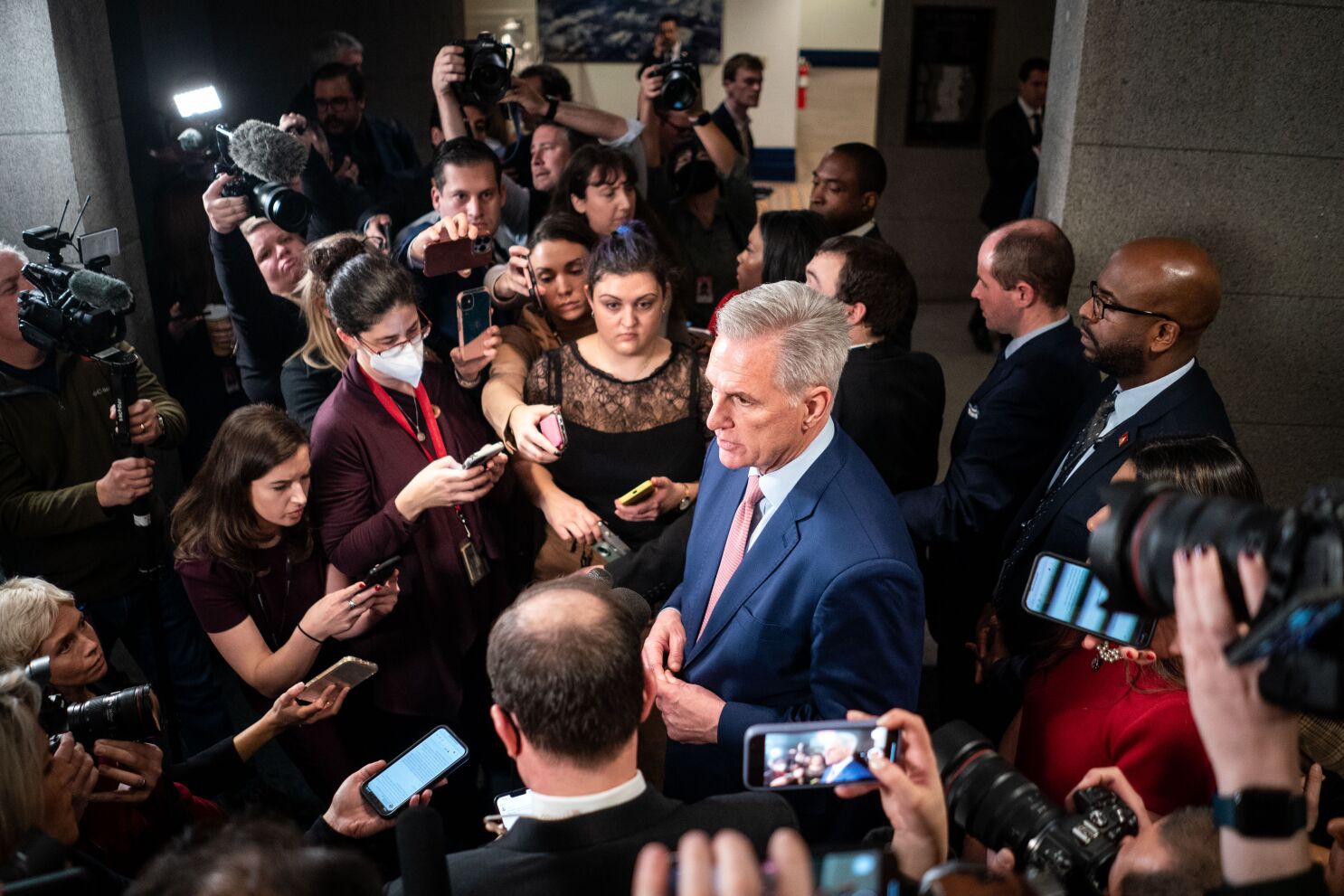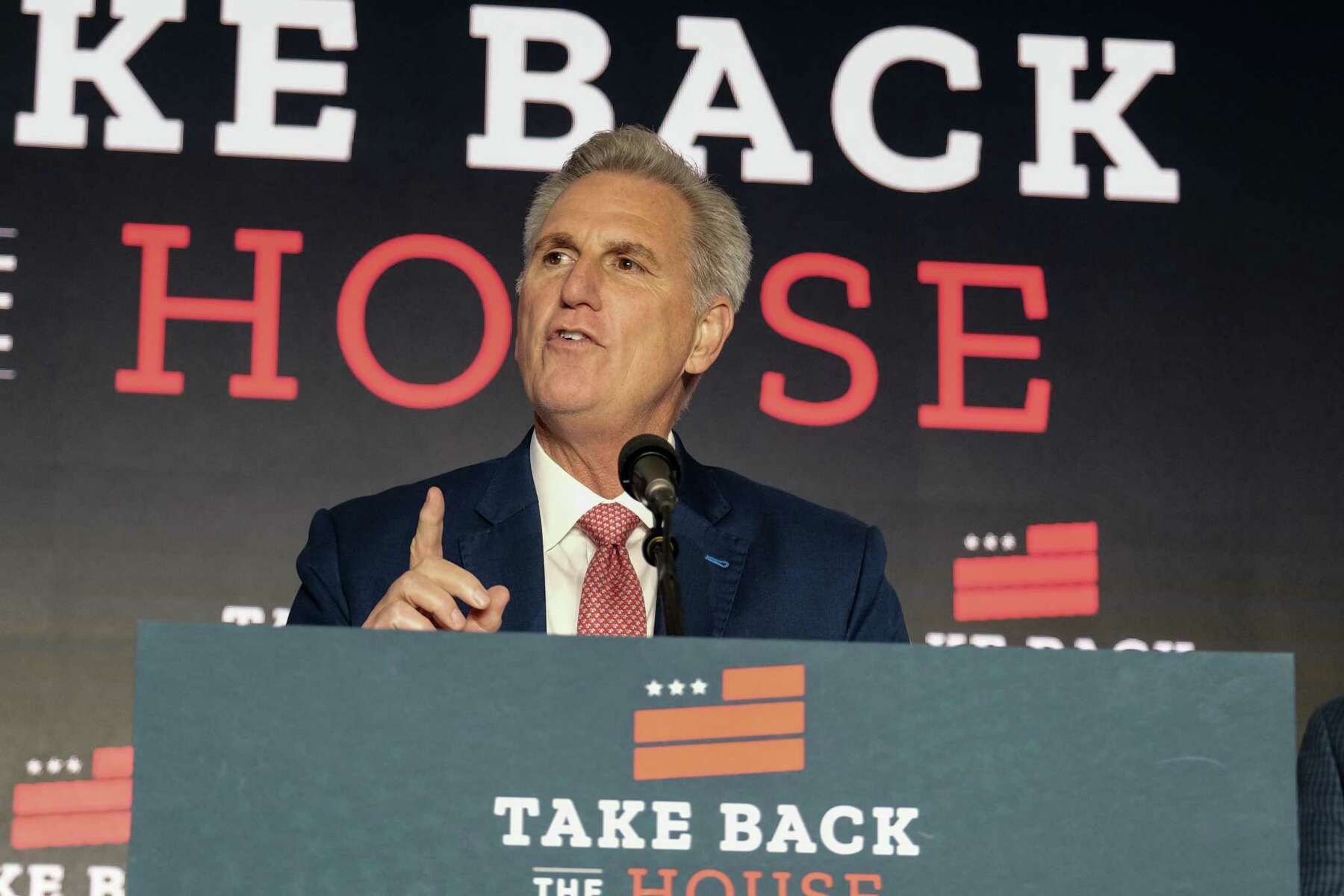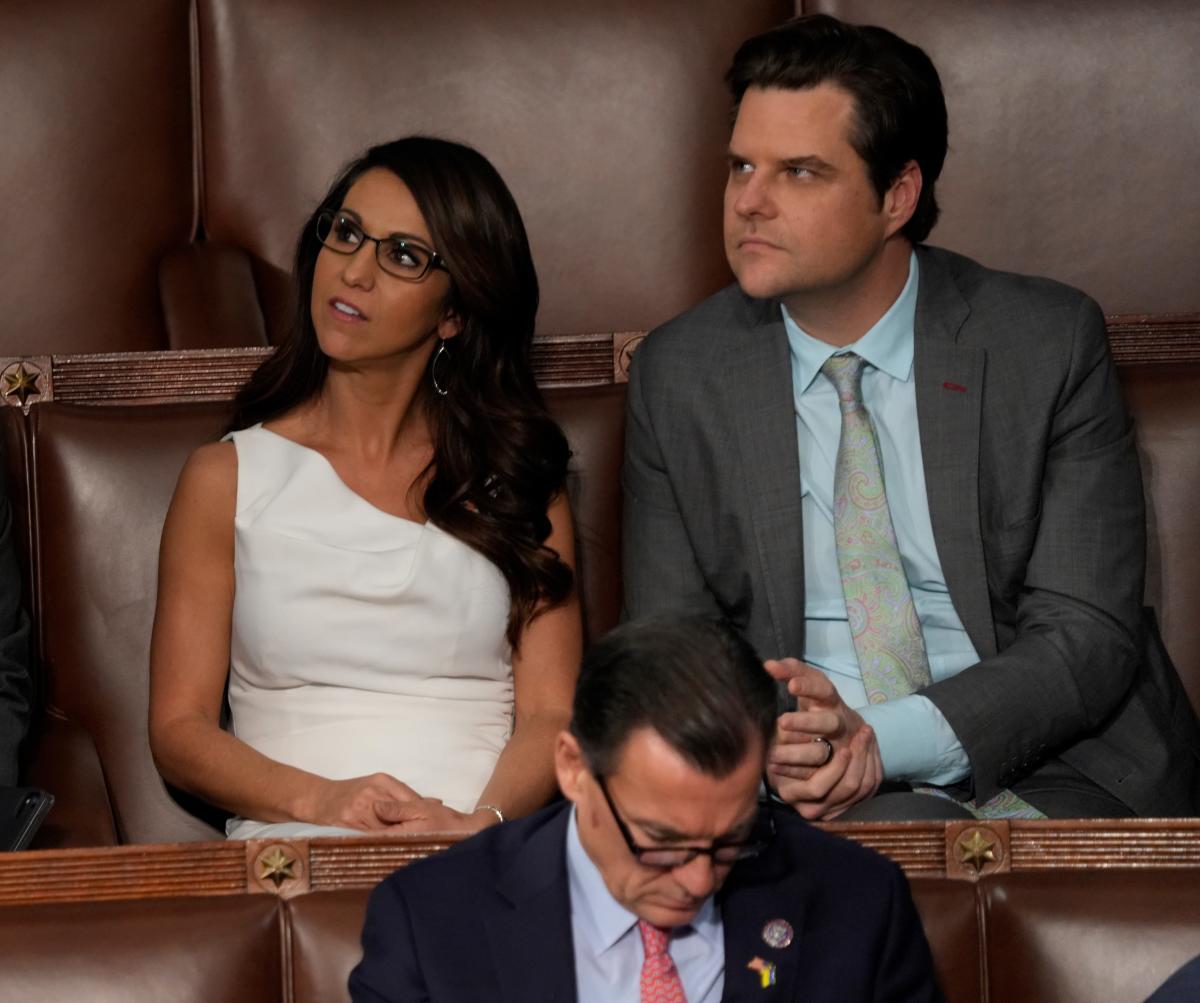Once-in-a-century embarrassment to GOP in US House: Why there is disunity among Republicans, and what happens next?

GOP in US House: What is the Freedom Caucus, a group of Republican legislators opposed to Mcarthy’s Speaker bid? Kevin McCarthy’s House Speaker campaign has been derailed by ultra-conservative Republicans. Take a look at each of these people.
Republicans in the main House of Representatives failed to elect a leader for the second day in a row on Wednesday (January 4) as a group of holdouts refused to support Kevin Mcarthy (R-CA). This was the first time since 1923 that a nominee from the House majority party did not receive the first vote for Speaker, a major embarrassment for the GOP.
The majority of Mcarthy’s own party’s hard-right, ultra-conservative lawmakers in the chamber oppose him. According to main The New York Times, at least 95% are House Freedom Caucus members (or have recently received their support from its campaign arm).
The Indian Express investigates the Freedom Caucus, including its members, political stances, and reasons for opposing Kevin McArthur becoming House Speaker.
The Republican Party’s far-right Freedom Caucus
The Freedom Caucus is the Republican Party’s far-right, most conservative caucus in the United States House of Representatives. The House Freedom Fund, according to its website, is a political action committee (PAC) that “supports candidates for Congress who are committed to open, accountable, and limited government.”
The caucus has about 30 members (more than the number of people who voted against Mcarthy) and aims to shift American politics and the Republican Party to the right in the long run. It was formed in 2015 in response to widespread dissatisfaction with the GOP establishment expressed by some lawmakers. “That was the first time we also got together and also decided we were a group, and also not just a bunch of pissed-off guys,” says founding member Mick Mulvaney.
It arose from the Republican Party’s Tea Party Movement, which began in 2009 and was a fiscally conservative political movement. Members of this movement advocated for lower taxes and reduced government spending in order to reduce the federal budget deficit and also the national debt. The Freedom Caucus, according to Jim Jordan, is a “smaller, more cohesive, more agile, and also more active” group of conservative lawmakers.

However, as the disastrous speaker election demonstrated, the term “fringe” may not adequately describe the caucus’s influence within the Republican Party. According to Daniel Ziblatt’s book Conservative Parties and also the Birth of Democracies, the Republican Party has become more tolerant of “ferocious right-wing populist politics, which mainly threatens to swallow older, self-identified conservative political parties.”
What are the Freedom Caucus’ ideologies and political stances?
Although the House Freedom Caucus cannot be viewed as a single entity, its positions can be broadly described as fiscally conservative and populist. The group, which has tried several times to repeal the Affordable Care Act, is generally in favour of cutting government spending, lowering taxes, and decentralising power. Many observers have labelled the caucus “nativist,” “anti-globalist,” and “white supremacist” for its stance on immigration.
In 2016, the Freedom Caucus backed Donald Trump wholeheartedly as he campaigned his way to an improbable election victory. Politico described the Freedom Caucus as “more populist and also nationalist, but less bound by policy principles” due to its unwavering loyalty to Trump.
Almost all of the lawmakers who voted against McCarthy made statements that cast doubt on the 2020 election. 14 of the 15 incumbents who opposed McCarthy were among the 139 House Republicans who voted on January 6, 2021, to invalidate the results of the 2020 Electoral College. Trump’s first and most effective message was that he wants to flip Washington on its head. Immediately after Trump’s victory in 2016, Mulvaney declared, “We want the exact same thing.
Despite his personal friendship with Kevin Mcarthy and open support for him as Speaker candidate, many members of the Freedom Caucus have continued to refuse to support Donald Trump.
Why is the Freedom Caucus opposed to Kevin McArthy’s bid for Speaker?
To be clear, not also every member of the main Freedom Caucus has opposed Kevin Mcarthy. Jim Jordan and Marjorie Taylor Greene, both well-known Freedom Caucus members, backed Mcarthy. However, the Freedom Caucus accounts for 19 of the 20 GOP members who voted for other candidates (to date). According to the BBC, the “Never Kevin” supporters “suggest that McCarty is too closely aligned with a broken system and also will do little to change how Washington is governed.”
The American people want us to turn the page, said Andy Biggs, one of the prominent holdouts who has launched an unlikely bid for Speaker. They want results and not justifications or performance art. As a condition for their support, the holdouts have also demanded a number of concessions, including voting in favour of border security legislation, term limits for members of Congress, and changes to the process for ousting an incumbent speaker.
The Freedom Caucus has previously thwarted Republican candidates for Speaker. After the Freedom Caucus stated that it would not support Kevin McCarthy’s bid for speaker in 2015, Paul Ryan was elected as the new speaker. The Freedom Caucus, a main group of conservative lawmakers, effectively forced Republican House Speaker John Boehner to resign in 2015 because they felt “he wasn’t forceful enough against Obama,” according to The New York Times.
A disruption display
Groups like the Freedom Caucus have never felt more powerful than they do now that the Republican establishment has chosen to remain silent in the face of the party’s growing right-wing surge. Many people believe they do not represent persuasive or coherent political positions. Instead, they ostensibly oppose the “establishment,” a term used by its members to refer to any legislator who exposes their wrongdoing. They also want to “burn it all down,” which would have a significant impact on how Washington operates.
They desire “more headlines, more airtime, more spectacle, and… more power,” according to the New York Times. They don’t want to run the country; instead, they want to play on the Republican base’s growing desire to sabotage things.
The United States House of main Representatives adjourned without a new Speaker on Tuesday, January 3, after Republican leader Kevin McCarthy failed to secure enough votes in three consecutive voting rounds to win the position.
This was the first time since 1923 that a candidate for Speaker of the House from the House’s majority party did not receive the first vote. McCarthy faced a rebellion within the Republican Party, which had just barely won control of the lower house of Congress in the November elections the previous year, according to US media reports.

The House will also reconvene on Wednesday at noon (10.30 p.m. in India) to continue the procedure. However, the outcome remains uncertain due to the Republicans’ ongoing impasse.
As the 118th Congress began, the 435 members of the House of Representatives gathered on Tuesday to elect a Speaker. McCarthy, who was running for the position, fell short of the required 218 votes, despite the fact that the Republican Party has a 222-member majority in the House.
According to the BBC, a group of conservative Republicans defected from their party and supported other candidates over McCarthy’s on “ideological and personal grounds,” including Jim Jordan, an Ohio Republican representative who nominated McCarthy in an effort to demonstrate party unity, and far-right Republican Paul Gosar.
Meanwhile, Hakeem Jeffries of New York received unanimous support from the Democratic Party’s 212 House members. He received 212 votes overall and was elected House Minority Leader, and making him the first black leader in either party in Congress. Nancy Pelosi, 82, who also led House Democrats from 2003 to 2013, has been replaced by Congresswoman Terri Jeffries, 52.
McCarthy, a Californian representative who served as minority leader after serving as House majority leader from 2014 to 2019, was expected to lose his party’s support. McCarthy has long been openly opposed by a group of 19 hard right Republicans who support former President Donald Trump because they believe he is “insufficiently supportive of their movement,” according to a BBC report.

According to The New York Times, these Republican leaders want to change the way the House works. McCarthy met with them for weeks before Tuesday’s election and agreed to a number of their demands, including “a rule that would allow five lawmakers to call a snap vote at any time to oust the Speaker.” According to the New York Times, members of the House are required to vote until a candidate receives a majority to become Speaker.
McCarthy has the best chance of winning right now, but the Republican leadership stalemate is likely to continue. The hard right leaders would “never back down,” according to some lawmakers, according to the BBC. Despite his declaration that he will not continue talks with the insurgents, McCarthy is limited in his options. According to the BBC, he may try to sway them with “profitable committee assignments or new leadership roles.”
edited and proofread by nikita sharma





